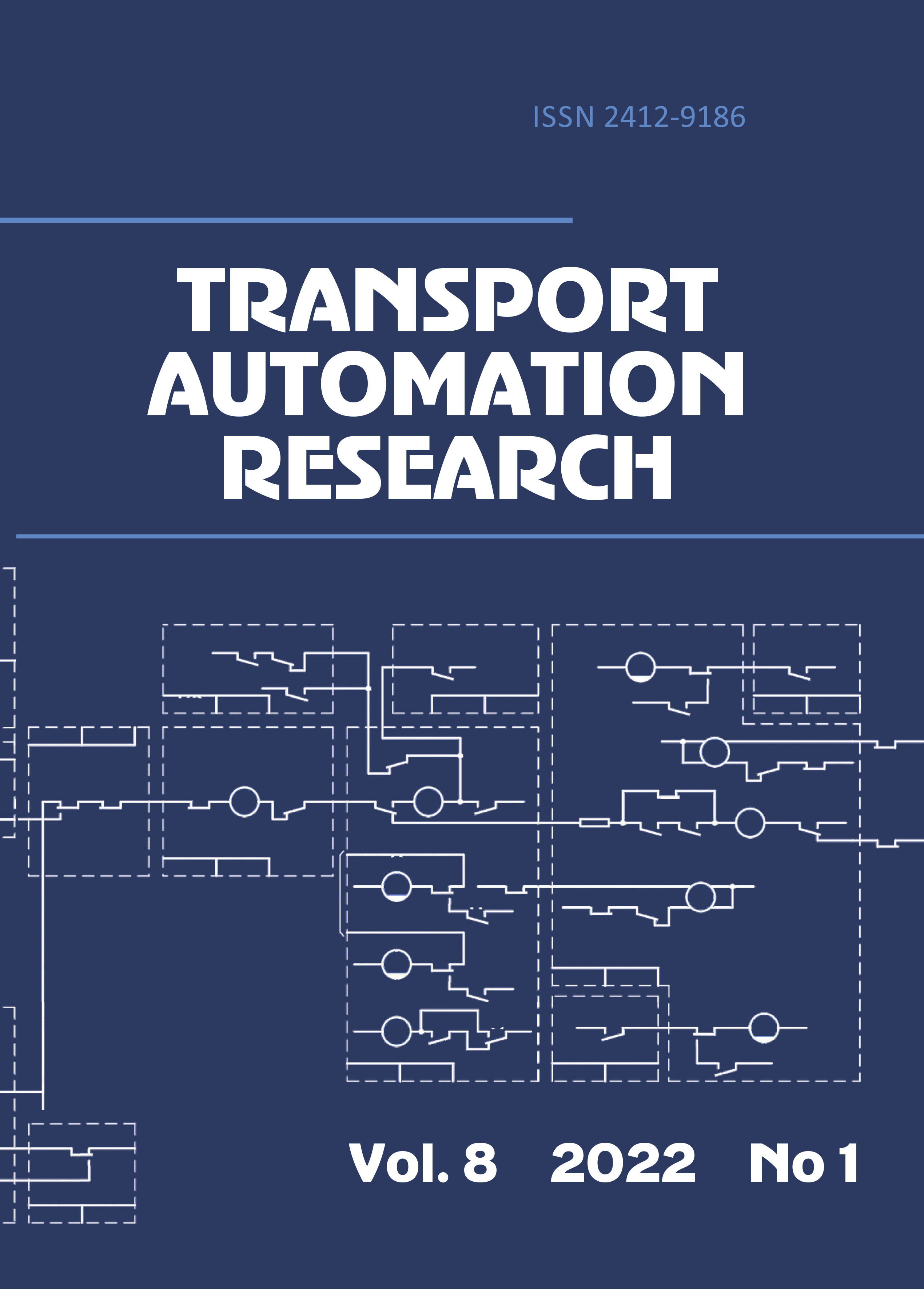Russian Federation
Traffic schedule of trains on Moscow underground line at present is made up by highly qualified schedulers from underground dispatcher apparatus. Created timetable acts for many days as a law for metro drivers and takes into account the variability of passenger traffic by days of a week and hours of a day. At present, ready schedule represents many-pages primary document, having additions in the form of train turnover schedule and timetable for train teams which consist sometimes of one machinist and sometimes are added by an assistant. Besides, the schedule also for turned round machinist teams exists. These teams anytime conduct empty trains in line dead ends in tunnels whiles main team can go at final station from the end of train to its head and also have a rest sometimes. Except turned round teams there are shift-teams who provides for possibility of lunchtime and leisure for main teams in their every day job. Thus, set of timetables exists which chain major link is train traffic schedule. Because of the difficulties with scheduling which are overcome at present by trial and error method, the possibilities for to create schedule many variants with the purpose of subsequent selection suiting best amongst them, are absent in the majority of cases. Such selection might be made in the following purposes: minimization of electric energy expenditures during the day, increase of schedule stability to fluctuations, constantly acting per day, of kind of little fails because of passenger big inflow on a station or small violations of traffic safety. The listed set of problems can be overcome in the case of existence of central administration of all trains of metro line with the help of computational technics. There’s been suggested in the work the methodology of scheduling for underground trains on the basis of mathematical apparatus which provides for schedule final calculation inclusive of all requirements and limitations. The specificity of developed methodology is in its processability for further realization in the form of program product.
train traffic timetable, underground, mathematical apparatus, management of transport systems, night arrangement, uniform intervals, mathematical modelling, potential method, Euclid
1. O metropolitene URL: [Rezhim dostupa: https://gup.mosmetro.ru/o-metropolitene/] [accessed Sep 30 2021]
2. Lazarev A.A., Tarasov I.A. Sostavlenie optimal'nogo raspisaniya dvizheniya poezdov mezhdu dvumya stanciyami, Soedinennymi odnoputnoy zheleznoy dorogoy s raz'ezdom // UBS. - 2015. - №58. - S. 244-283.
3. Ignatenkov A.V., Ol'shanskiy A.M. Primenenie iskusstvennoy neyronnoy seti dlya postroeniya raspisaniy processov na primere grafika dvizheniya poezdov // Sovremennye informacionnye tehnologii i IT-obrazovanie. - 2015. - №11. - S. 50-55.
4. Lebedev A.V. Primenenie iskusstvennyh neyronnyh setey v operativnom upravlenii dvizheniem poezdov // Vestnik IrGTU. - 2008. - №4. - S. 81-84.
5. Podhody k ocenke kachestva planirovaniya i upravleniya dvizheniem passazhirskih poezdov metropolitena / T. A. Iskakov, A. I. Safronov, V. G. Sidorenko, M. A. Chzho // Avtomatika na transporte. - 2020. - T. 6. - № 1. - S. 38-63. - DOIhttps://doi.org/10.20295/2412-9186-2020-6-1-38-63.
6. Sidorenko V. G. Primenenie metodov iskusstvennogo intellekta k resheniyu zadach planirovaniya perevozochnogo processa metropolitena / V. G. Sidorenko, M. A. Chzho // Novye tendencii razvitiya v upravlenii processami perevozok, avtomatike i infokommunikaciyah: Trudy Vserossiyskoy nauchno-prakticheskoy konferencii uchenyh transportnyh vuzov, inzhenernyh rabotnikov i predstaviteley akademicheskoy nauki s mezhdunarodnym uchastiem, Habarovsk, 29 sentyabrya 2017 goda / Pod redakciey A.I. Godyaeva. - Habarovsk: Dal'nevostochnyy gosudarstvennyy universitet putey soobscheniya, 2017. - S. 197-201.
7. Danilenko T. M., Bulah V. A. Modelirovanie grafika dvizheniya poezdov po linii Har'kovskogo metropolitena // VEZhPT. - 2011. - №3 (50). - S. 54-57.
8. Sybil Derrible, Christopher Kennedy. The complexity and robustness of metro networks. Physica A 389 (17). - 2010. - PP.3678-3691.
9. Pei Liu, Marie Schmidt, Qingxia Kong, Joris Camiel Wagenaar, Lixing Yang, Ziyou Gao, Housheng Zhou. A robust and energy-efficient train timetable for the subway system, Transportation Research Part C: Emerging Technologies. Part 121. - 2020. - Pp. 102822 - 102849.
10. Xin Yang, Xiang Li, Bin Ning, Tao Tang. A Survey on Energy-Efficient Train Operation for Urban Rail Transit. IEEE Transactions on Intelligent Transportation Systems, Volume 17. -2015. - Pp. 2-13.
11. Haładyn, S. The Problem of Train Scheduling in the Context of the Load on the Power Supply Infrastructure. A Case Study. Energies. Part 14. - 2021. - Pp. 8248 - 8260.
12. Wenkai Xu, Peng Zhao, and Liqiao Ning. A Practical Method for Timetable Rescheduling in Subway Networks during the End-of-Service Period. Journal of Advanced Transportation. - 2018. - Pp. 1-9.
13. Jovanovi´ c, P., Kecman, P., Bojovi´ c, N., Mandi´ c, D. Optimal allocation of buffer times to increase train schedule robustness. European Journal of Operational Research. Part 256. - 2017. Pp. 44-54.
14. Wang, P.; Goverde, R.M. Multi-train trajectory optimization for energy-efficient timetabling. European Journal of Operational Research. Part 272. - 2019. - Pp. 621-635.
15. Cacchiani, V.; Toth, P. Robust Train Timetabling. In Handbook of Optimization in the Railway Industry; International Series in Operations Research and Management Science 268; Springer: New York, NY, USA. - 2018. - Pp. 93-115.
16. Schipper, D.; Gerrits, L. Differences and similarities in European railway disruption management practices. J. Rail Transp. Plan. Manag. Part 8. - 2018. - Pp. 42-55.
17. S. Binder, Y. Maknoon, M. Bierlaire. “The multi-objective railway timetable rescheduling problem,” Transportation Research Part C: Emerging Technologies, vol. 78. - 2017. - Pp. 78-94.
18. Kolmogorov A.N., Fomin S.V. Elementy teorii funkciy i funkcional'nogo analiza. Nauka: M. - 1972. - S.544.
19. Seslavin A.I. Seslavina E.A. Principy ravnomernosti v zadachah upravleniya potokami passazhirskogo transporta. Prikladnaya informatika. - 2009. - № 2 (20). - S. 91-95.
20. Loginova, L.N. Matematicheskie metody i osnovnye principy organizacii transportnyh perevozok / L. N. Loginova, E. A. Seslavina, A. I. Seslavin // Transportnoe delo Rossii. - 2021. - № 4. - S. 84-87. - DOIhttps://doi.org/10.52375/20728689_2021_4_84.










